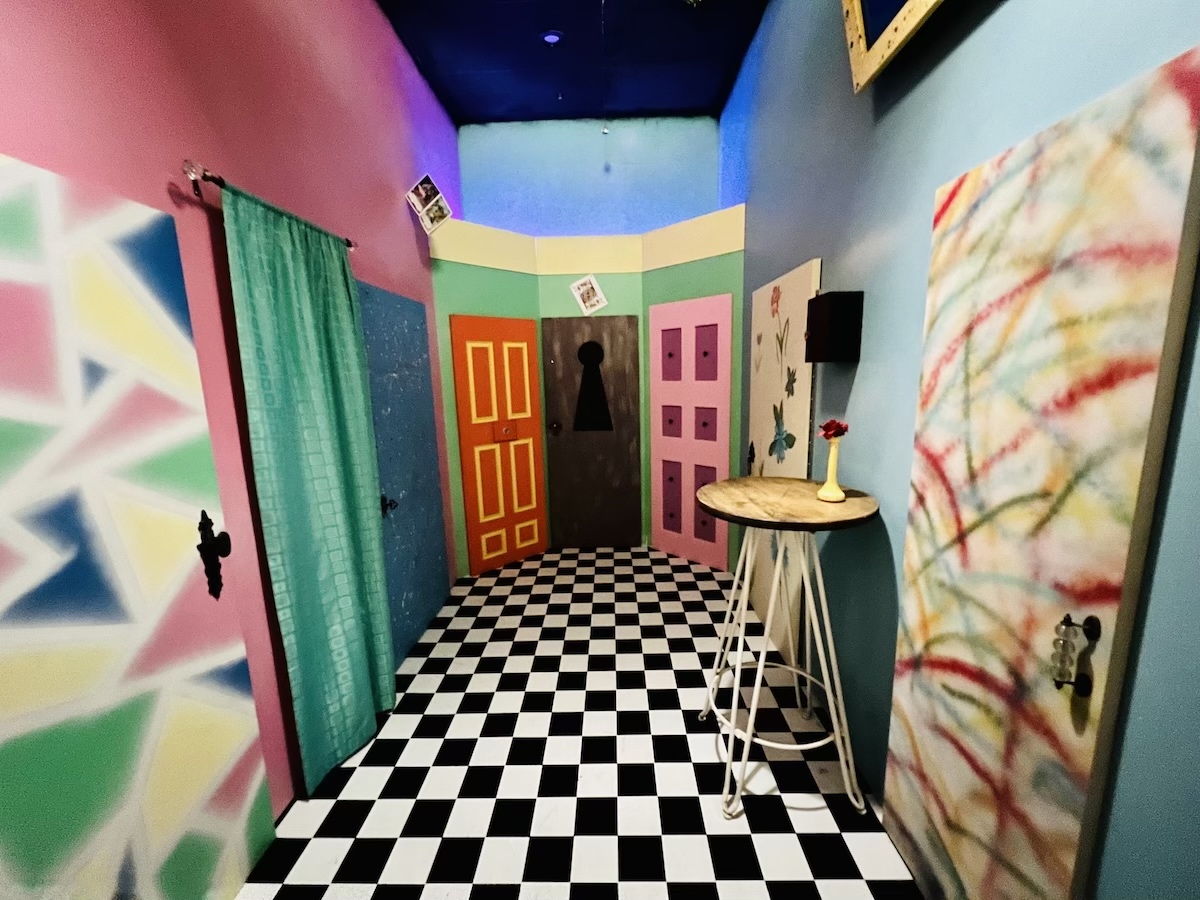Team Methods: Exactly How to Work together Effectively in a Getaway Space
Navigating the complexities of an escape area demands greater than simple interest; it requires a well-coordinated approach grounded in clear interaction, critical function projects, and proficient time management. Groups have to proactively listen to each participant's insights, assign duties that straighten with private strengths, and keep routine check-ins to guarantee focus and protect against redundancy. By promoting an atmosphere that values cohesion and flexibility, teams can considerably enhance their effectiveness and success rates. The subtleties of these methods can transform the experience, yet exactly how exactly can they be applied to make the most of the possibility for success?
Establish Clear Interaction

To assist in clear communication, it is important to mark a main factor of call for information circulation. This function includes summing up findings and recommended strategies to make certain everybody remains on the very same web page. Additionally, adopting a methodical strategy to discussions can protect against disorderly exchanges. Quick, focused updates from each team member can keep the team educated without frustrating them with information - best escape room.
Appoint Functions Purposefully
While clear interaction establishes the structure for reliable team effort, assigning roles purposefully ensures that each employee's toughness are used effectively. In a retreat area situation, the time-sensitive and intricate nature of obstacles necessitates a well-organized method to task delegation. By recognizing and leveraging individual expertises, teams can enhance their problem-solving capabilities and improve overall performance.
First, analyze the special skills and qualities of each individual. Somebody with a keen eye for detail could stand out in discovering surprise things, while a rational thinker could be much better suited to solving challenges. It's similarly important to have a leader that can oversee progression, take care of the timeline, and make crucial phone calls when required. This duty usually calls for solid business and interpersonal skills.
2nd, make sure that functions are versatile and versatile. As brand-new obstacles emerge, the team has to have the ability to pivot, reallocating tasks as called for. This versatility helps keep energy and prevents bottlenecks that can occur as a result of inflexible function projects.
Eventually, a critical method to role job not just maximizes the strengths of each group participant however also cultivates a cohesive setting, driving the team in the direction of an effective retreat.
Utilize Diverse Abilities
Recognizing and taking advantage of the diverse abilities within your group can significantly raise your performance in a getaway area. Each team participant brings special strengths to the table, and effectively leveraging these abilities can expedite analytical and enhance general efficiency. As an example, an employee with solid analytical skills could succeed at decoding complicated codes or patterns, while an additional with keen observational capacities may promptly find covert ideas that others might ignore.
Reliable communication is crucial to making use of these diverse skills. Motivate employee to articulate their understandings and ideas quickly, making sure that all possible solutions are considered. This inclusive method promotes a vibrant setting where imagination and important reasoning can flourish. Additionally, assigning tasks that align with each member's strengths can stop traffic jams and make certain that progression is continual.
Additionally, variety in skills often equates to diversity in believing designs, which is important in a getaway space setup. While some obstacles may need sensible reasoning and precision, others may gain from imaginative and lateral reasoning. By acknowledging and leveraging this diversity, groups can resolve a more comprehensive variety of difficulties better, therefore boosting their possibilities of a successful getaway.
Manage Time Efficiently

First, allocate initial mins for a fast study of the space. Determine visible puzzles and separate tasks based upon staff member' strengths, guaranteeing that no one is still. Set inner time checkpoints to review development regularly; as an example, aim to have half the problems addressed by the mid-point of the video game. This practice can aid maintain the team focused and protect against time from escaping unnoticed.
Additionally, avoid tunnel vision. If a puzzle is taking as well long, turn staff member or relocate on to an additional obstacle, returning later with fresh perspectives. Interaction is extremely important-- maintain everyone upgraded on resolved puzzles and continuing to be tasks to stay clear of redundant efforts.
Finally, utilize any kind of hints or clues moderately but purposefully - best escape room. Knowing look at this website when to request for help can conserve important time. By sticking to these time management concepts, teams can substantially improve their possibilities of a successful and satisfying escape space experience
Debrief and Reflect
Representation is an essential element of group development and renovation in the context of escape areas. When the obstacle is completed, whether effectively or otherwise, it is essential for the group to take part in an organized debriefing session. This procedure enables group members to examine their efficiency, identify staminas, and pinpoint go right here areas for enhancement.
Start the debrief by reviewing what worked out. Highlight details instances of efficient interaction, analytic, and collaboration. Recognizing these positive habits enhances them and encourages their repetition in future difficulties.
Following, address the obstacles came across. Review moments of confusion, miscommunication, or inefficient methods. Urge an open and constructive dialogue where staff member can share their point of views without anxiety of objection. This fosters a culture of continuous improvement and knowing.
Verdict
In conclusion, effective cooperation in a retreat space is asserted upon clear communication, strategic role jobs, the reliable application of varied abilities, and competent time monitoring. Routine check-ins and structured debriefings are important for maintaining emphasis and promoting constant renovation. By producing a natural and adaptive team environment, the likelihood of efficiently solving challenges and achieving the purpose of running away the area is significantly enhanced. This strategy not just guarantees success yet also promotes cumulative growth and learning.